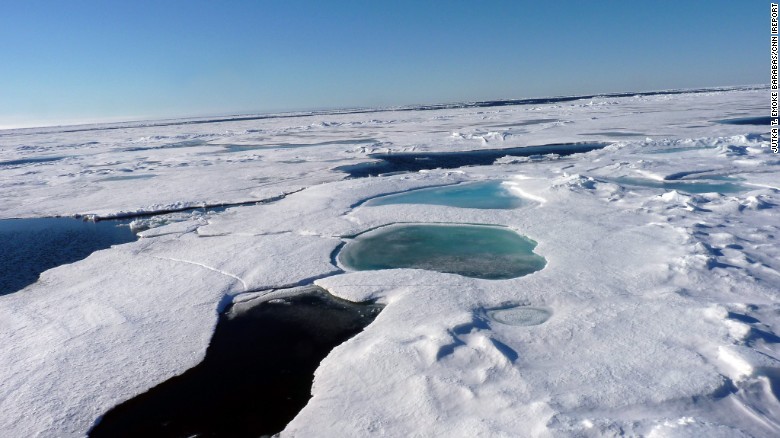

News
New chlamydia species discovered deep under the Arctic Ocean.
(CNN) – When people hear the word chlamydia, they usually think about sexually transmitted infections. And it’s true that the specific bacteria that causes chlamydia typically depend on interactions with other organisms to survive. So when a team of researchers discovered several new chlamydia-related species deep below the Arctic Ocean, in a place with no oxygen and without an apparent host organism, they were surprised.
“Finding Chlamydiae in this environment was completely unexpected, and of course begged the question what on earth were they doing there?” Jennah Dharamshi, a PhD student at Uppsala University in Sweden and the lead author of a recent study, said in a news release.
The findings, published last week in Current Biology, could shed new light on how chlamydia came to infect humans and other animals.
They came across a number of diverse cousins of chlamydia between 0.1 and 9.4 meters below the seafloor, and found that the new species were closely related to the bacteria that cause infections in humans and other animals.
Bacteria ‘exceptionally abundant!’
While the authors didn’t find other host organisms that the new chlamydia-related bacteria depended on to survive, they said that the species could be getting fuel from other microorganisms deep in the ocean sediment. “Finding that Chlamydia have marine sediment relatives has given us new insights into how chlamydial pathogens evolved,” Dharamshi said. A team of international researchers made the discovery by collecting samples during a visit to Loki’s Castle, a field of hydrothermal vents in the Arctic Ocean between Greenland, Iceland and Norway.
What makes this discovery particularly interesting, scientists said, is the environment in which the bacteria were found. At a level so deep beneath the ocean’s surface, there’s almost no oxygen and extremely high pressure. But researchers said they found that the new species of bacteria were “exceptionally abundant” in this part of the ocean — in some cases, they were even the dominant bacteria. That could suggest that chlamydia and related bacteria play a much bigger role in marine ecology than previously known, researchers said. For now, scientists don’t know for sure what that role is. But this latest discovery signals that there could be more of these bacteria deep under the ocean’s surface. And that might lead to some answers.

Continue Reading














